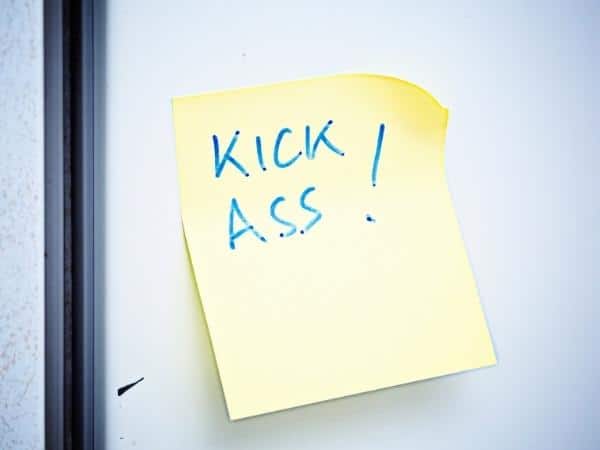Hustle Culture and Burnout
This is a collaborative post.
In recent years, there has been a sharp rise in the culture of prioritizing work over all else and devoting all of one’s resources to working hard. This culture, known as hustle culture, has convinced us that the only way to get respect from others or ourselves is to work hard. It makes us believe that if we don’t dedicate every available minute of our time doing something productive, we don’t have what it takes to be successful – it means we don’t want success badly enough, so we don’t deserve it.

Jump to:
What is hustle culture?
Hustle culture can be defined as a fast-paced lifestyle that focuses on long work hours and a restless desire to achieve some sort of goal.
Hustle culture’s prevalence and normalization are remarkable. After all, we already know from scientific research that putting in longer hours does not make people more productive. After a threshold of 48 hours per week, productivity starts to decrease as the number of worked hours increases.
Moreover, employees who have been at working overtime for extended periods may experience exhaustion or stress, which not only affects productivity but also increases the risk of errors, accidents, and sickness, all of which end up imposing additional costs on the employer.
Then how come hustle culture is taking over the world?
Perhaps it’s because social media posts advocating ‘the hustle’ have taken over everyone’s feeds in recent years. These posts take numerous forms, ranging from ‘motivational’ quotes encouraging us to follow our dreams to posts from friends about their various projects and business ventures. Being constantly exposed to these “motivational posts” can either make us feel more motivated or simply add unnecessary stress to our lives.
We’ve Been Brainwashed into Idolizing the Hustle
The American ethos of working hard to get rich dates back to the California gold rush. While Americans have always valued hard work, the gold rush is what fostered this idea that anyone can get rich if they seize the right opportunity and put in as much work as they humanly can for a short amount of time. Over the years, this has evolved into the conviction that hard work, combined with a smart routine and an inspiring vision board, can make all your dreams come true.
The irony is that only a few gold rushers were actually successful, and even they did it by taking selling goods and services to the other gold rushers. These days, wealth is seldom made by working hard for a company. It’s made by the companies that employ people who believe in hustle culture and are willing to work twice as hard for half the money.
The business world is capitalizing on the hustle culture. Unpaid overtime has increased from 7.3 to 9.2 hours in the last year, and people generally work longer. Many employers demand complete dedication.
According to a survey from Goldman Sachs showed that they work more than 95 hours per week and sleep five hours per night. That goes well beyond going hard. It’s brainwashing and exploitation.
While the world’s billionaires grew their wealth by 54% during the pandemic, the average employee continues to struggle. Rising prices, student loan debt, lack of health care, and soaring real estate – life is getting more expensive while the job market is becoming more competitive and wages stagnate.
Hustle culture is a culture built on a strong work ethic and can-do attitude. People like Elon Musk, who preach working between 80 and 100 hours per week, epitomize this culture. In reality, all we’re doing is idolizing workaholism. We don’t just hustle and love the hustle. We also boast about how much we hustle, encouraging others to hustle even more.
And even though we have laws in place to protect workers and prevent employers from exploiting them, this does not seem to make hustle culture any less pervasive.
One of the biggest problems with hustle culture is that it makes people focus only on making it big at some point in the future. To bring that point in the future closer to the present, they pour all their time and energy into “the hustle” and give up their present. We become so used to operating on autopilot that we lose touch with ourselves, and we no longer notice that our lives are passing us by while we’re letting ourselves be held captive by the myths propagated by this culture.
Hustle Culture Is Burnout Culture
Adhering to hustle culture isn’t only tiring. It can lead to burnout. And yes, burnout is a real thing. The World Health Organization (WHO) defines burnout as a syndrome stemming from chronic workplace stress. Burned-out workers develop a pessimistic attitude toward their jobs. This, coupled with the physical symptoms of exhaustion, makes them less productive.
By pushing employees to adopt a “go hard or go home” mentality, employers are triggering their fight-or-flight response. This makes their bodies release cortisol in higher amounts. The fight-or-flight response is very useful when the stress is caused by a temporary threat like a wild animal, but the body cannot sustain such elevated levels of cortisol for prolonged periods and tries to normalize them by entering a state of rest. Cortisol levels that remain elevated for a long time have been linked to a variety of negative effects, including anxiety, depression, cardiovascular disease, cognitive impairment, and more.
But in hustle culture, there is no time for rest, so burnout is guaranteed.
In order to perform well professionally, learn new skills and deliver quality work, employees need to get some sort of personal satisfaction from their jobs that makes them more conscientious. Simply increasing their workload does not make people more productive. On the contrary, research shows a positive link between wellbeing and productivity, so when people are less stressed, they become more productive. By keeping people in a constant state of stress, hustle culture paradoxically reduces productivity.
After the COVID-19 pandemic put the realities of mental health under the spotlight, we can see some promising cultural changes. Employees have finally started prioritizing their wellbeing above their employers’ demands for complete dedication.
My amazing freebies
I know how hard it can sometimes be to stick to a plan and follow a new routine. Planning is key so here are some weight loss resources that should really help you with that.




